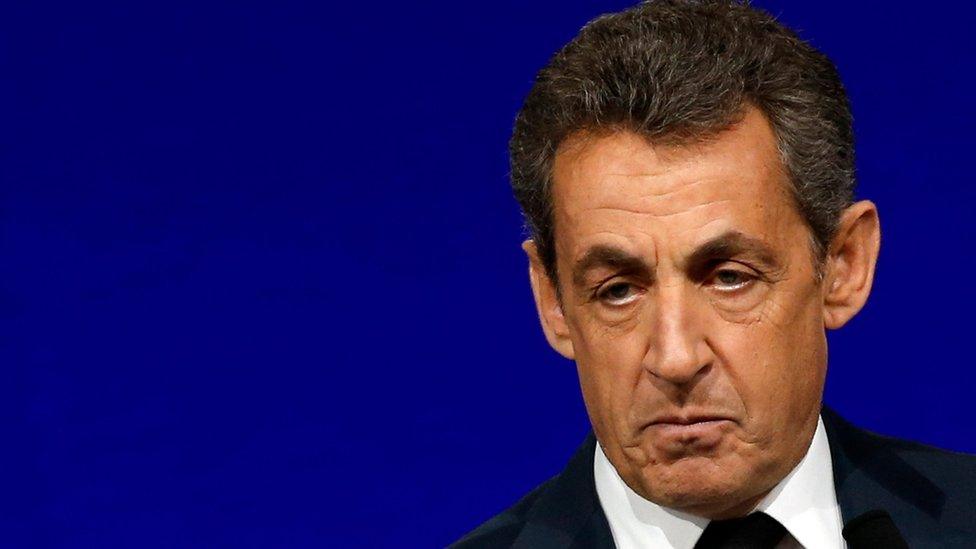France's Macron joins presidential race to 'unblock France'
- Published
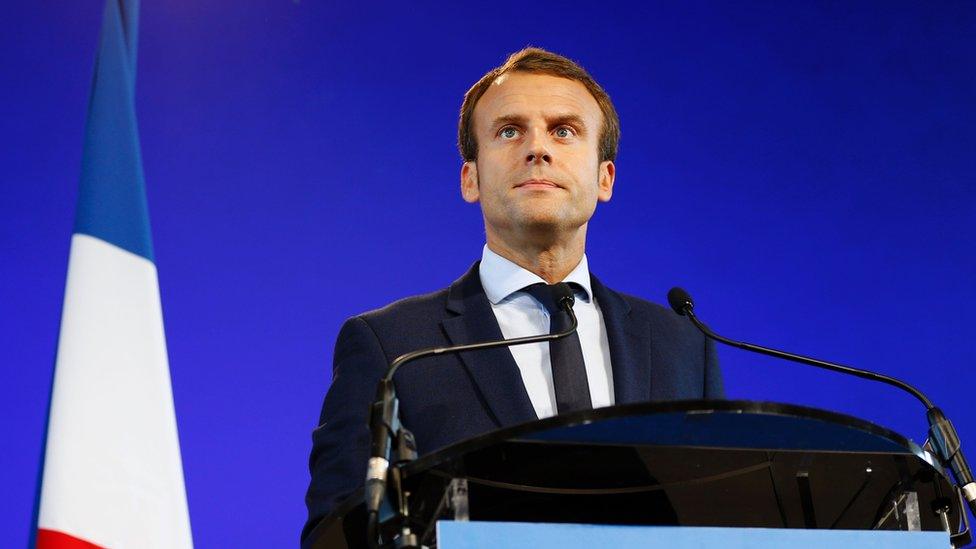
Emmanuel Macron, who is 38, started his own political movement in April
Former French Economy Minister Emmanuel Macron has announced he is running for president, vowing a "democratic revolution" if elected.
The political system was paralysed, he said. "I want to free the energy of the able while protecting the weakest."
After serving under Socialist President Francois Hollande, he is now running as an independent.
His move has unsettled rivals from both the left and right hoping to represent France's mainstream parties.
The conservative Republican party will begin selecting its own candidate in new, US-style primaries on Sunday.
Earlier, frontrunner Alain Juppe accused Mr Macron of betraying President Hollande, saying he had "stabbed him in the back".
A one-time protege of the president, Mr Macron quit the Socialist government in August amid discontent within the party over his political ambitions.
Mr Hollande has not yet confirmed whether he will stand for re-election in April and will make a decision in the coming weeks. He has the lowest popularity ratings of any post-war French president.
Mr Macron, a former investment banker who has never been elected, ended the speculation at a press conference in a Paris suburb.
"France is... blocked by corporatism of all kinds," he said, referring to large interest groups. "I reject this system."
He will run as head of the centrist En Marche movement he created in April, which now has almost 97,000 members and has received €2.7m ($2.9m; £2.3m) in donations.
The movement advocates "new ideas... neither of the right nor the left".
Mr Macron repeated the theme on Wednesday, saying: "The challenge is not for me to bring together the left or bring together the right. The challenge is to bring together France."
Benoit Hamon, a candidate for the Socialist nomination, lamented Mr Macron's independent candidacy, telling BFMTV it was almost guaranteed to split the left vote and prevent any single candidate reaching the second round of the presidential vote.
Meanwhile Marine Le Pen, leader of the burgeoning far-right National Front dismissed Mr Macron as "a candidate of the banks, there's always one".
Reaction on social media was mixed.
One survey suggests that 38% of French voters believe Mr Macron would be a good president.
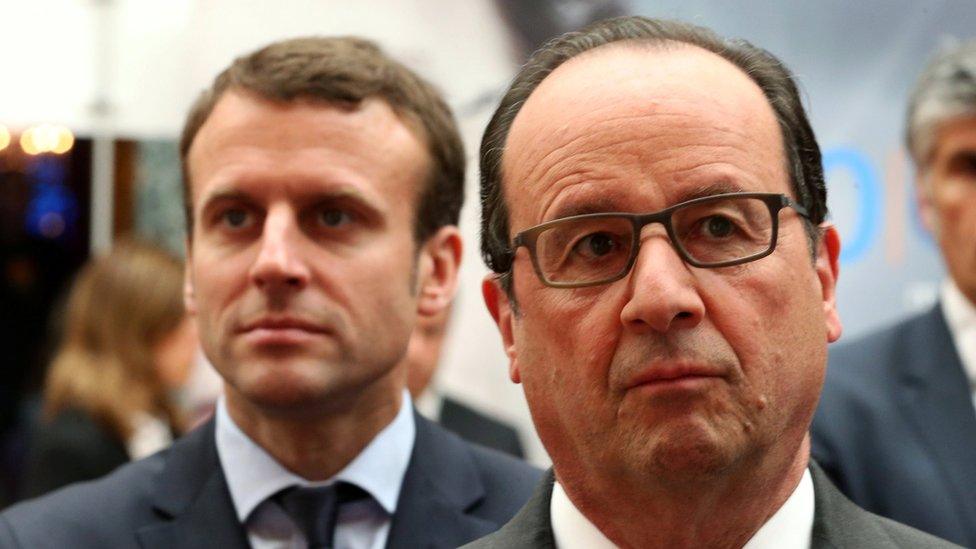
The former economy minister is a one-time protege of Francois Hollande (right)
His candidacy also caused upset among some of the centre-right candidates vying for the Republican nomination.
Former Prime Minister Juppe is favourite to win the poll, running on a moderate ticket but he is facing stiff competition from former President Nicolas Sarkozy, who is running a law-and-order campaign, and Thatcherite former PM Francois Fillon.
Mr Sarkozy's bid was dealt a blow on Tuesday after new allegations emerged that he had received millions of euros in illegal financing from the regime of late Libyan dictator Muammar Gaddafi.
He and his former chief of staff have denied wrongdoing in the case, which involves funding for his successful 2007 presidential campaign.
Meanwhile, President Hollande has said France's state of emergency should continue until the election.
It was due to be lifted in January, having been in place since the November 2015 terror attacks in Paris. Mr Hollande's proposal would see it kept until 7 May, the second and final round of the presidential election.
- Published13 November 2016
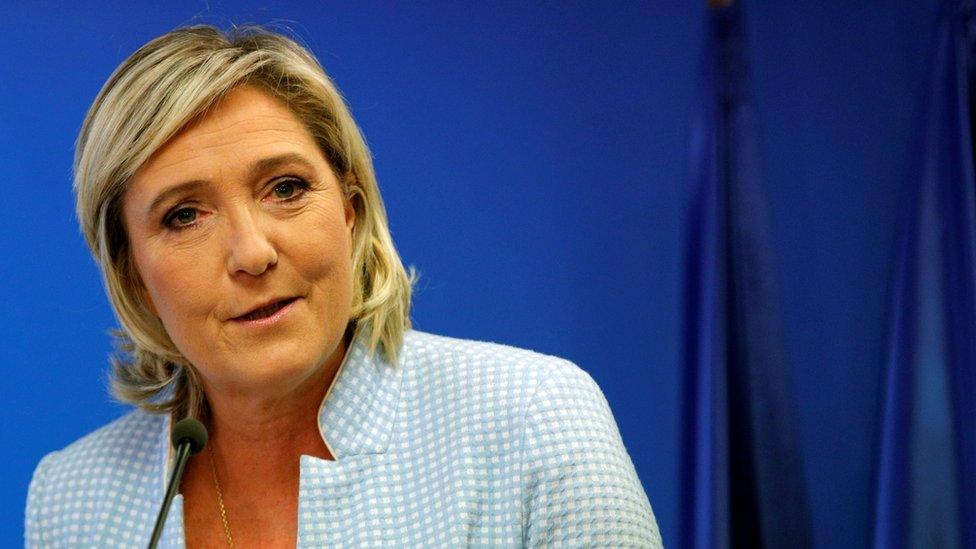
- Published11 November 2016
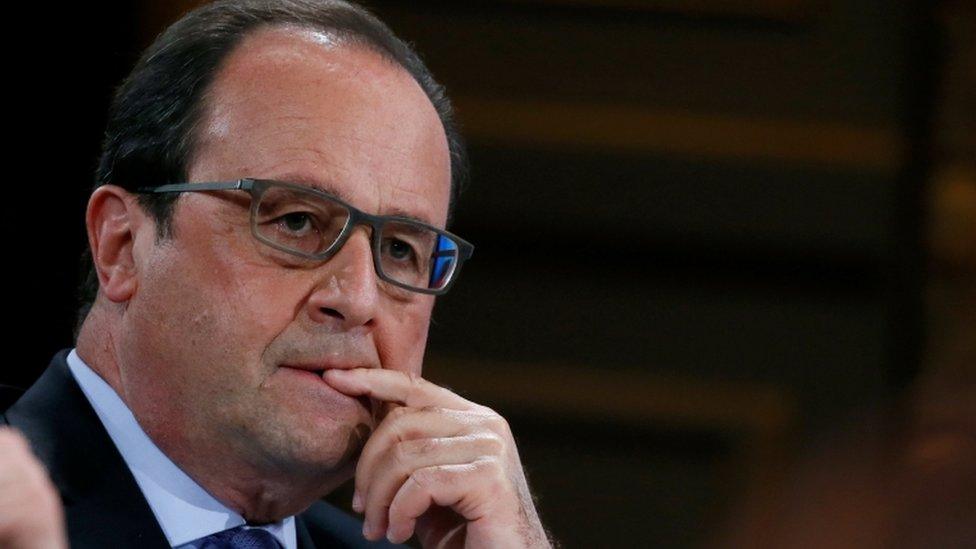
- Published16 February 2016
